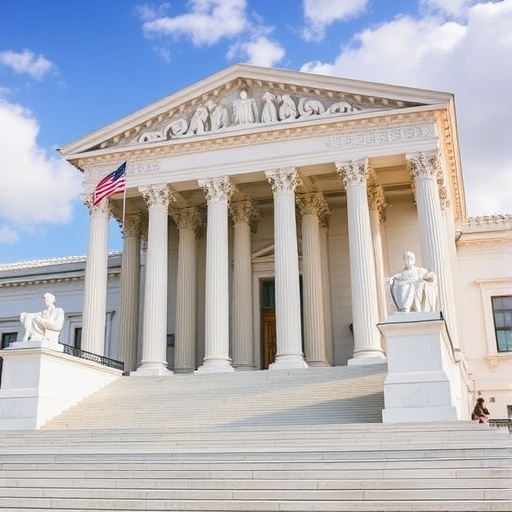Abortion Access Takes Center Stage in Pennsylvania Supreme Court Retention Elections Battle
In the shadow of the U.S. Supreme Court’s 2022 Dobbs decision that overturned Roe v. Wade, Pennsylvania‘s judicial landscape is heating up as reproductive rights become the flashpoint in upcoming Supreme Court retention elections. With conservatives eyeing a chance to flip the court’s Democratic majority, voters face a pivotal choice that could safeguard or severely restrict abortion access for over 13 million residents. This November, retention votes for three Democratic justices—Christine Donohue, David Wecht, and Kevin Dougherty—will test the resolve of Pennsylvanians amid a surge in mobilization from both sides of the aisle.
The stakes couldn’t be higher. Pennsylvania‘s Supreme Court currently holds a 5-2 Democratic edge, a balance that has protected key reproductive rights rulings in the past. But with abortion bans sweeping red states and legal challenges mounting, health advocates warn that losing even one seat could tip the scales toward restrictions. Democrats and pro-choice groups are pouring resources into campaigns emphasizing the justices’ records on fairness and access, while conservative organizations frame the elections as a referendum on judicial overreach.
Recent polls from Emerson College Polling show that 58% of Pennsylvania voters support legal abortion in most cases, underscoring the emotional and electoral weight of the issue. As the state becomes a battleground for national reproductive rights post-Dobbs, these retention elections—unique in that voters simply say yes or no to keeping justices—could redefine access to abortion services in a crucial swing state.
Conservatives Target Democratic Justices to Reshape Abortion Rulings
Conservative groups, backed by national organizations like the Judicial Crisis Network, are mounting an aggressive campaign to unseat the three Democratic justices up for retention. Their strategy hinges on portraying the court as activist and out of touch, particularly on issues like abortion and reproductive rights. In Pennsylvania, where the Supreme Court has upheld funding for family planning services and struck down restrictive laws in the past, flipping the balance could open the door to challenges against the state’s 1982 Abortion Control Act.
“The Pennsylvania Supreme Court has been a rubber stamp for extreme abortion policies,” said Matt McReynolds, president of the conservative Pennsylvania Family Institute, in a recent statement. “Voters deserve judges who interpret the law, not rewrite it to expand abortion access at any cost.” The group has launched ads accusing Justices Donohue, Wecht, and Dougherty of bias, citing their involvement in a 2019 ruling that expanded voting rights but drawing parallels to perceived leniency on social issues.
Under Pennsylvania’s constitution, Supreme Court justices serve 10-year terms and face retention votes rather than partisan elections, a system designed to insulate the judiciary from politics. However, in this polarized era, the process has become fiercely contested. Conservatives point to the court’s Democratic majority as evidence of imbalance, arguing it has blocked Republican-led efforts to impose stricter abortion regulations, such as parental notification laws and waiting periods. With over 30,000 abortions performed annually in Pennsylvania according to the Guttmacher Institute, the court’s stance directly impacts clinics in cities like Philadelphia and Pittsburgh, where access remains relatively robust compared to neighboring states.
Funding for the conservative push is substantial. The Republican State Leadership Committee has pledged millions to state judicial races nationwide, including Pennsylvania, viewing it as a gateway to influencing redistricting and election laws alongside abortion cases. If successful, a more conservative court could revisit precedents like the 2001 ruling in Clark v. Barber, which affirmed a woman’s right to abortion under the state constitution, potentially aligning Pennsylvania with restrictive policies in states like Ohio or Texas.
Democrats and Advocates Rally to Defend Reproductive Rights Fortress
In response, Democrats and reproductive rights advocates are framing the retention elections as a bulwark against a national assault on abortion access. The Pennsylvania Democratic Party, in coalition with groups like Planned Parenthood and the ACLU of Pennsylvania, has launched a voter education drive targeting urban and suburban women, who polls show are overwhelmingly supportive of the justices’ retention.
“These justices have stood up for Pennsylvanians’ fundamental rights, including the right to make personal health decisions without government interference,” said Governor Josh Shapiro in a campaign rally last month. Shapiro, a Democrat who has vetoed multiple abortion restriction bills, emphasized that ousting the justices would invite chaos in a state where 62% of voters, per a recent Quinnipiac poll, oppose overturning Roe v. Wade’s protections at the state level.
Health advocates are amplifying the message through grassroots efforts. Planned Parenthood Pennsylvania Advocates & Resource Center reported a 25% increase in patient inquiries about abortion services since Dobbs, with many fearing future court rulings could shutter clinics. “Pennsylvania is an island of access in a sea of bans,” said Sara Johnson, CEO of the organization. “Losing our Supreme Court’s protective majority would be devastating for low-income women and people of color who rely on these services.”
The mobilization includes digital ads, door-to-door canvassing, and partnerships with labor unions and women’s groups. A super PAC called Fair Courts America, funded by progressive donors, has raised over $5 million specifically for Pennsylvania’s judicial races, focusing on the justices’ records of upholding environmental regulations and fair taxation alongside reproductive rights. This multifaceted approach aims to boost turnout among younger voters, who favor abortion rights by a 2-to-1 margin according to Pew Research Center data.
Contextually, Pennsylvania’s unique position as a swing state amplifies the elections’ importance. With battleground counties like Bucks and Montgomery leaning Democratic but showing conservative undercurrents on social issues, campaigns are tailoring messages to highlight how Supreme Court decisions affect everyday life—from school funding to healthcare access. The retention votes, set for November 5, coincide with the presidential election, potentially driving higher participation rates and intertwining judicial races with broader partisan battles.
Voter Sentiments and Polling Data Highlight Deep Divisions
As campaigns intensify, polling reveals a deeply divided electorate in Pennsylvania, where reproductive rights have emerged as a top motivator for turnout. A Franklin & Marshall College poll conducted in September found that 54% of likely voters consider abortion a key issue in their judicial voting decisions, surpassing concerns like crime or the economy. Among Democrats, support for retaining the justices hovers at 85%, while Republicans oppose at 62%, creating a razor-thin margin that could swing on independent voters.
Personal stories are cutting through the noise. In Philadelphia, 28-year-old Maria Gonzalez shared her experience accessing abortion care after an ectopic pregnancy, crediting Pennsylvania’s legal framework for saving her life. “If the Supreme Court flips, stories like mine could become tragedies,” she told reporters at a pro-retention rally. Such narratives are being weaponized by advocates to humanize the stakes, contrasting with conservative messaging that emphasizes fetal rights and religious freedoms.
Independents, who make up 40% of Pennsylvania’s electorate, are the wildcard. A Monmouth University survey indicates that 48% of them view the court’s Democratic majority favorably for protecting reproductive rights, but 35% worry about perceived partisanship. Campaigns are responding with targeted outreach: Democrats host town halls in college towns like State College, while conservatives air spots in rural areas decrying “judicial tyranny.”
Historically, Pennsylvania Supreme Court retention votes have seen high yes rates—over 70% in the last cycle—but the infusion of outside money and national attention on abortion has changed the calculus. The state’s 2015 and 2018 judicial elections, which flipped the court to Democrats, provide a blueprint for both sides, with turnout exceeding 50% in key races. This year’s elections, amid ongoing litigation over abortion bans in other states, underscore Pennsylvania’s role as a testing ground for post-Dobbs judicial politics.
National Implications as Pennsylvania’s Court Becomes a Reproductive Rights Beacon
Beyond state lines, the Pennsylvania Supreme Court retention battle is drawing eyes from across the nation, positioning the Keystone State as a potential beacon—or cautionary tale—for abortion access. Legal experts predict that a conservative shift could embolden challenges to Pennsylvania’s buffer zones around clinics and telemedicine abortion prescriptions, which have served over 10,000 patients annually per state health department data.
“What happens in Pennsylvania doesn’t stay in Pennsylvania,” noted Kimberlé Crenshaw, a Columbia Law professor specializing in reproductive justice, in an op-ed for The New York Times. “This court has been a firewall; breaching it could accelerate a domino effect in the Midwest and Northeast.” National groups like NARAL Pro-Choice America are funneling resources into Pennsylvania, viewing it as part of a broader strategy to fortify blue-leaning states against rollback attempts.
Conservatives, meanwhile, see victory here as momentum for their agenda. The Federalist Society has hosted webinars framing the elections as essential to restoring “originalist” judging on issues like abortion, drawing parallels to recent wins in Wisconsin and Michigan. With the U.S. Supreme Court unlikely to revisit national abortion rights soon, state courts like Pennsylvania’s are the new frontlines, handling over 200 reproductive rights cases since Dobbs according to the Center for Reproductive Rights.
Looking ahead, the outcomes of these retention elections will influence not just abortion policy but the court’s docket on voting rights, gerrymandering, and environmental protections—issues intertwined with progressive priorities. If the Democratic majority holds, advocates anticipate reinforced safeguards, potentially including a state constitutional amendment on reproductive rights pushed by lawmakers in Harrisburg. Conversely, a flip could lead to immediate lawsuits testing the limits of access, mirroring turmoil in states like Florida.
As Election Day approaches, both sides are ramping up get-out-the-vote efforts, with early voting already underway. Pennsylvania voters, from steel towns to suburban enclaves, hold the power to shape a judiciary that could echo nationally for decades. The battle over abortion and reproductive rights in these Supreme Court elections isn’t just local—it’s a harbinger of America’s divided future on bodily autonomy.








